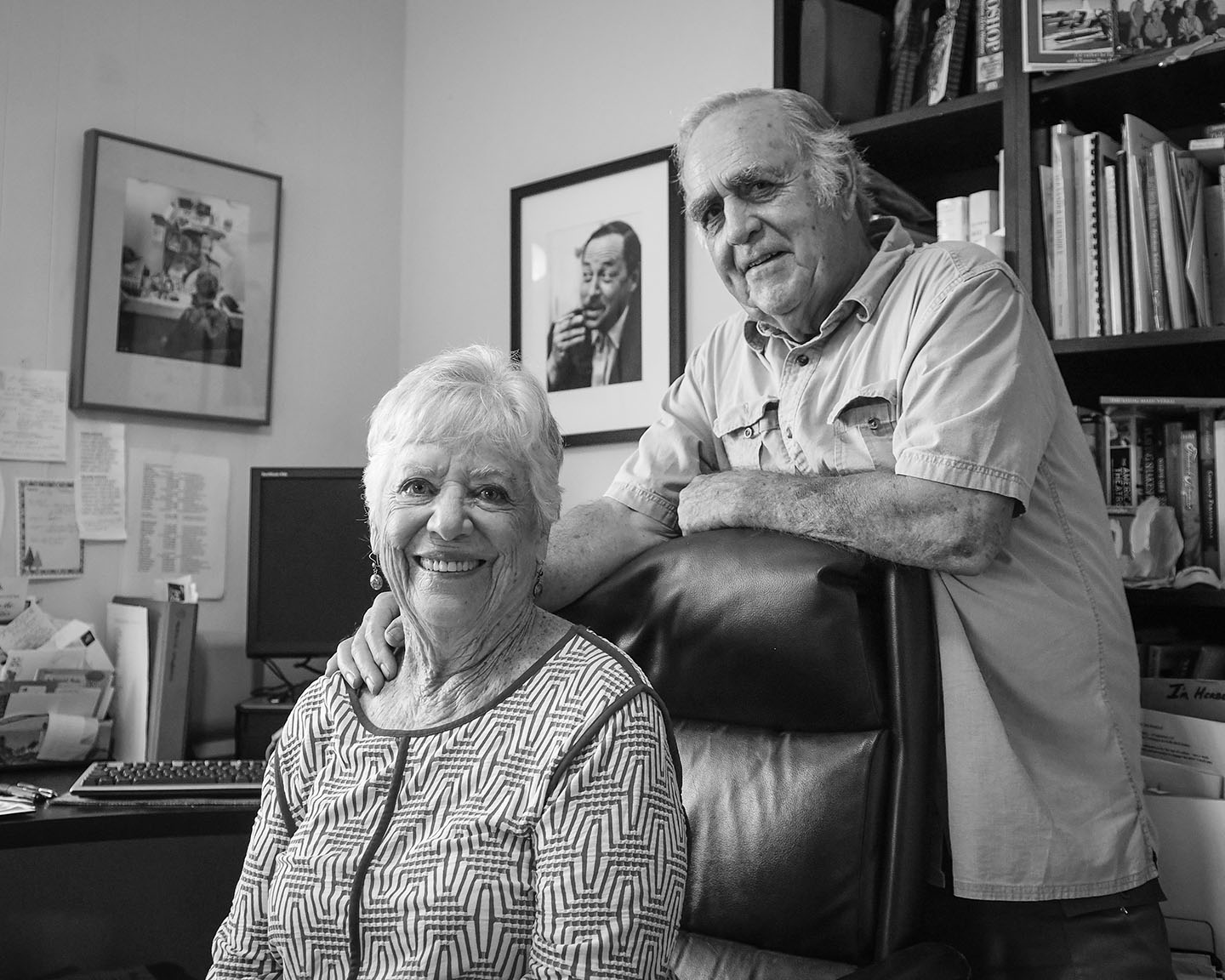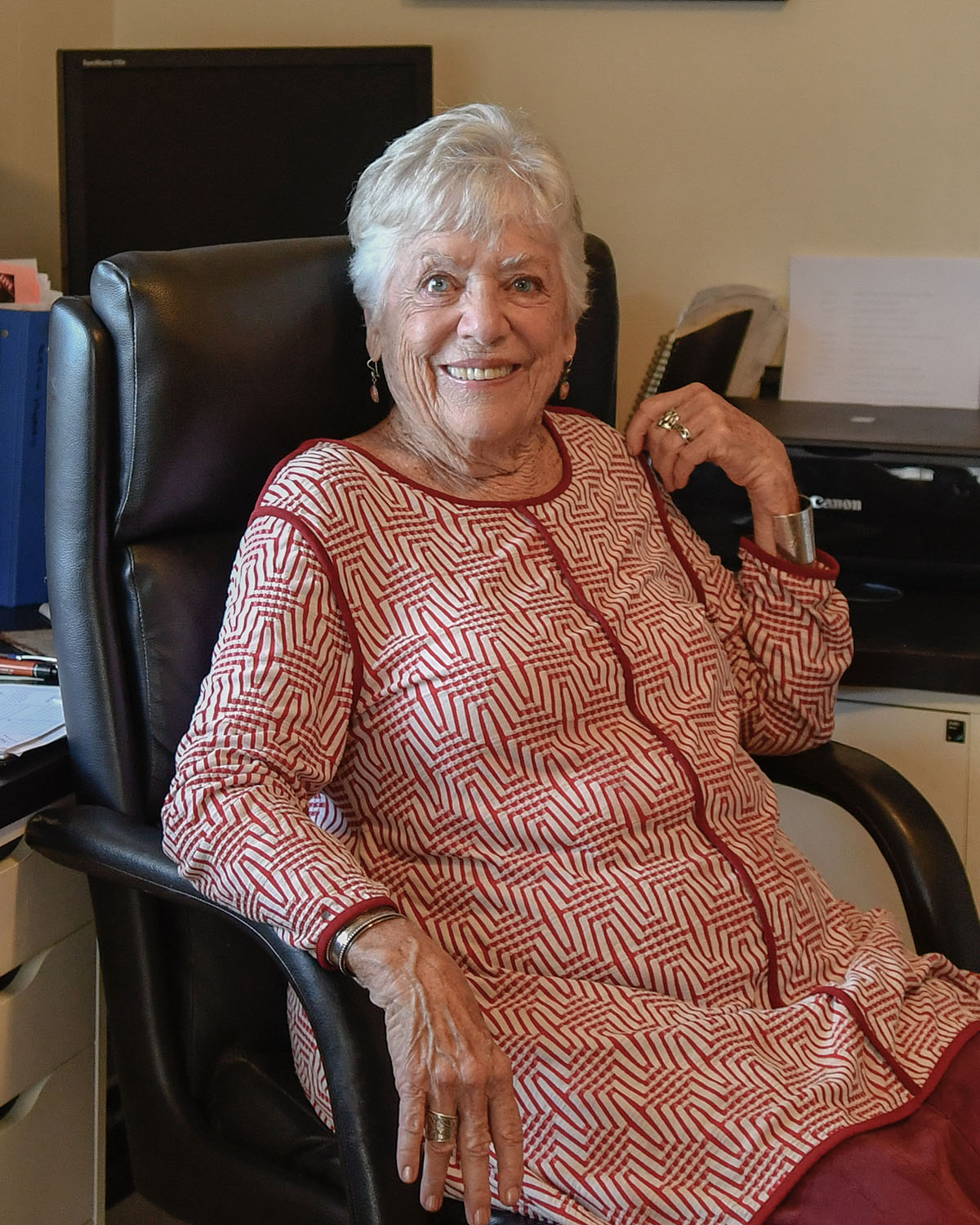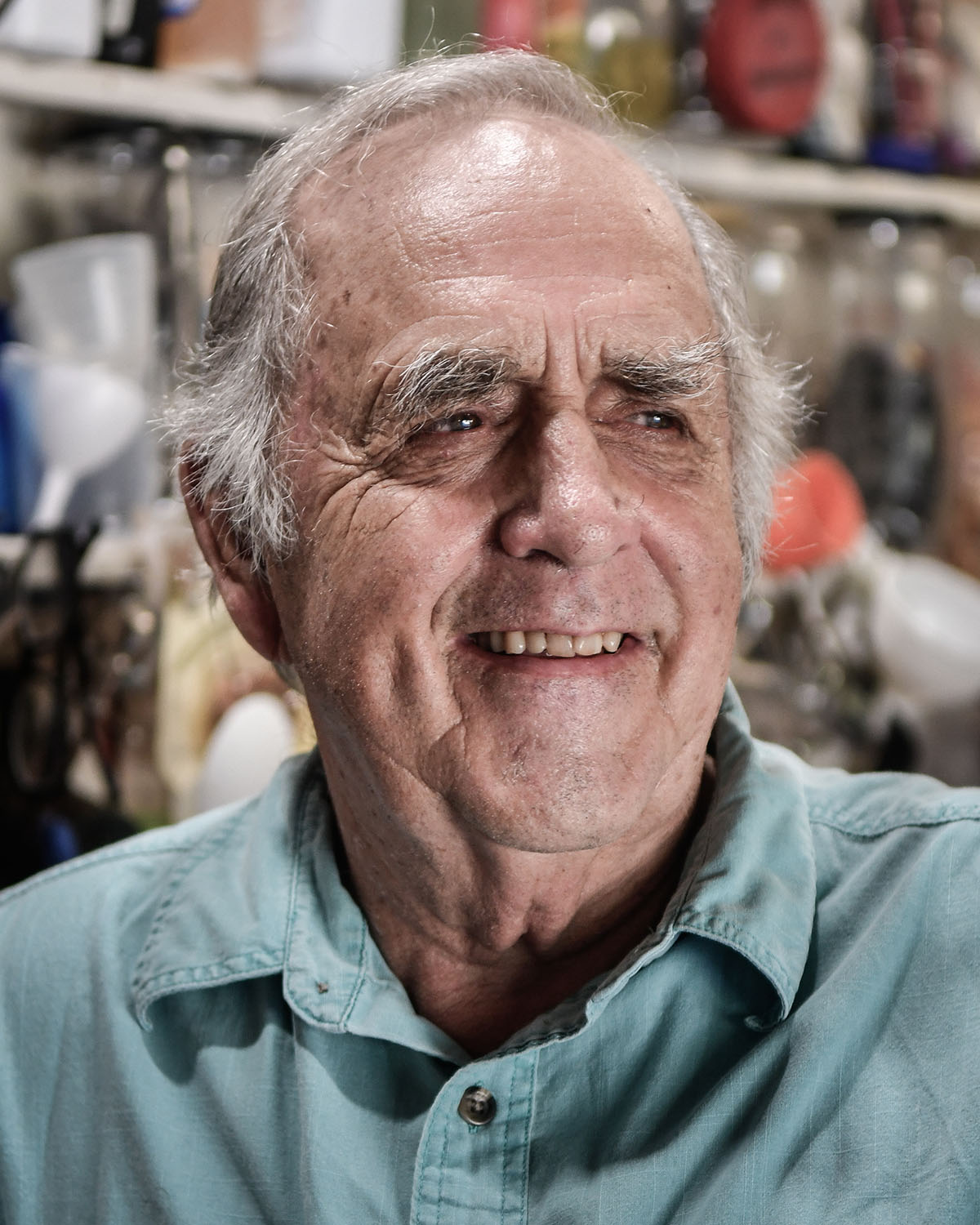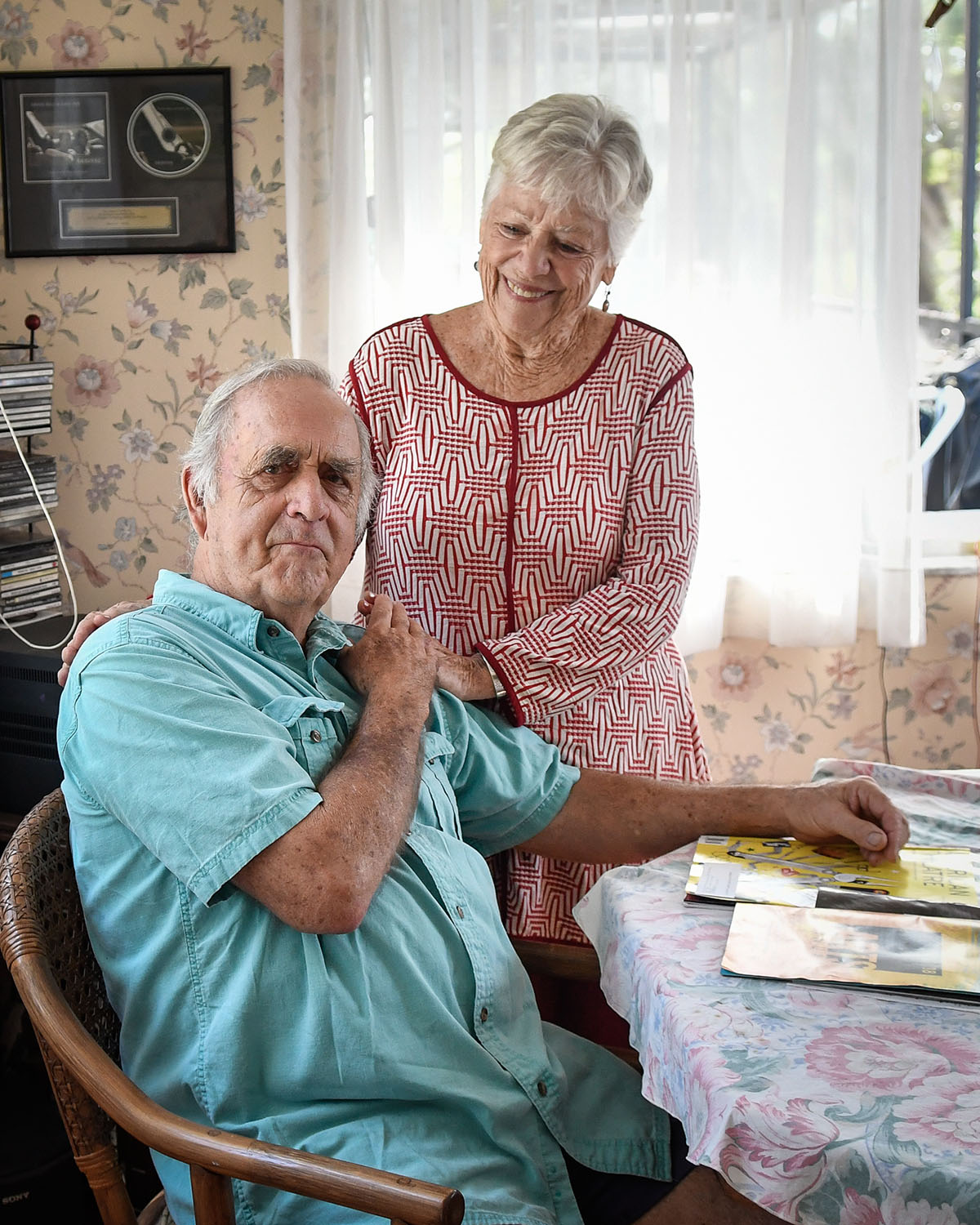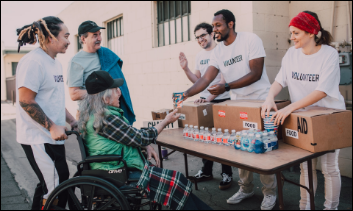How Did We Get Here? Photographer Tom Kramer and writer Mitzi Gordon want to know. In a new series for duPont REGISTRY Tampa Bay, they are charting the Bay area’s creative renaissance by meeting with transformative and inspiring arts leaders whose perspectives shed light on how the region shifted from sleepy suburbs to thriving cultural hub in just a few decades.
They deliver stories with all the flair you would expect from lifelong theater people. Sitting on their screened back patio in Lakewood Estates, surrounded by wide oak wilderness sloping down toward a neighborhood lake, Rich and Mimi Rice sip coffee and recall their early days in then-quiet St. Petersburg.
“People used to say about St. Pete that it was ‘Wrinkle City,’” Mimi laughed. “Central Avenue had some beautiful old buildings, and that was about it.”
Now moving vibrantly into their 80s, she and Rich maintain a deep-rooted connection to the arts. But when they first moved to St. Pete in 1980 from New Hampshire, where Rich had led university theater programs and Mimi acted in summer theater, the city’s cultural landscape was nowhere near as lively as it is now. The original Dalì Museum was just being built, the Vinoy was an empty shell, and while the local theater scene wasn’t exactly a wasteland, said Rich, it was “spotty.” What was then known as the St. Pete Little Theatre was running shows, the USF theater program was bringing in British directors, and in Pinellas Park the Showboat Dinner Theatre was a draw. But American Stage was still in its infancy — and for a performer, the workplace could be downright dangerous.
“You went into rehearsal and the theater had dressing rooms in the back, but we couldn’t use them because they were rat-infested!” Mimi said of an early incarnation of American Stage, where she played Amanda in The Glass Menagerie. “We had to dress in the office on the corner and walk down the alley — we would be escorted down the alley — and then we could wait backstage.”
Despite these unpromising conditions, both Rich and Mimi found the ’Burg a welcoming place. The couple started working together at Eckerd College, where Rich — who received his Ph.D. in Theater from the University of Utah in 1970 — served as Director of Theater for more than two decades. Mimi became Equity liaison coordinator for South Florida in the mid-1980s, representing 300 professional actors, chorus members and stage managers across Tampa, Orlando, Sarasota, and St. Petersburg.
“Orlando Equity went national, and Disney started hiring Equity actors,” she said. “It was a big deal.”
One of Rich’s Eckerd classes performed a Lorca play for the original Dalì Museum opening in 1982. Other students in his directing class were assigned to produce a one-act play and find someplace, anyplace, to perform it in town. They took to street corners and storefronts, and eventually to Williams Park, where these live happenings often drew memorable audiences — as in one instance when the actors were doing a scene on a park bench.
“A drunk came in and sat down next to the theater students … and it was great!” Rich said. “He watched this whole thing, and it just made it a different production.”
While mentoring students, Rich himself found a mentor in David Kranes, who served on Rich’s PhD committee back in Utah. Kranes was bringing in top-ranked directors and actors from both coasts to develop new plays at Sundance, and Rich wanted to emulate this concept at the academic level. Thus the WordBRIDGE Playwright’s Lab was conceived, and pitched to the country’s best college playwrights.
This lab brought together a team of resource artists to support playwrights in need of encouragement. Each writer was housed and fed in residency for at least two weeks, all the while working intently with actors and directors — and often with architects, historians, psychologists or musicians — on developing a new dramatic work.
“We had some incredible storytellers who would take whatever the playwright was working on and retell it in mythic terms,” Rich said. “It would blow people away. Often a play would be totally redone.”
Roughly a dozen alumni from the program’s 10-year run are now well-known playwrights with Broadway credits, including Pulitzer finalist Lisa D’Amour (Detroit) and Lauren Gunderson, the most produced living U.S. playwright in 2018, whose Miss Bennet: Christmas at Pemberley was recently seen at American Stage.
As Mimi recalled, each participant would walk away inspired.
“For an actor it was an incredible experience, because we got to create a character — and then it would get changed, it would move, it would enliven,” she said. “Sometimes the words that came out of our mouths would be in the script, and sometimes the character would disappear.”
About 70 dramatists from across the nation moved through the WordBRIDGE lab. For its first public event, a notable playwright and actor from Los Angeles was invited to come perform his latest work. The play was Uncle Bends: A Home-Cooked Negro Narrative, and its author was Bob Devin Jones, who eventually settled in St. Pete and founded The Studio@620, the popular community art space on 1st Avenue South.
WordBRIDGE relocated to Clemson University in South Carolina, then on to Towson University in Maryland before funding dried up. Rich credits institutions like Eckerd, USF and St. Petersburg Junior College (SPC) with providing crucial early backing for these and other arts projects. Over time, SPC gave home to American Stage, and later to the Florida Orchestra and Palladium Theatre.
“They’ve been the patron angels the arts have needed in many ways,” he said. “We’ve developed a real artist community here.”
As local spaces like American Stage and freeFall Theatre took root, they challenged the art form — and each other — by not playing down to audiences. Theatergoers and patrons responded with increasing attendance and support.
“Good theater grows good people,” Mimi said. She’s proven that axiom with a project of her own. Working alongside local writers Matt and Sheila Cowley, with help from Bob Devin Jones, she founded the Radio Theatre Project (RTP) in 2008, bringing full-cast theater productions (complete with live sound effects) to Bay area radio and performance venues.
During its first season, the project produced scripts from WordBRIDGE and plays by local writers such as Paul Wilborn, who now runs the Palladium Theatre. Audiences swelled from a few dozen people at first to capacity crowds for RTP’s monthly performances at The Studio@620. Among the scripts were adapted short stories by longtime St. Pete resident Peter Meinke, a former Eckerd College professor and now Florida’s Poet Laureate.In addition to its live performances (including a recent award-winning gig at the 2018 Atlanta Fringe Audio Festival), RTP also streams on SoundCloud, attracting worldwide listeners from Russia to Brazil.
Rich and Mimi continue to track the changing local scene with mingled awe and excitement. A few years ago, they wandered downtown for dinner to celebrate the sale of their boat. Sitting at The Moon Under Water on Beach Drive, with the Birchwood rooftop lounge just opening up for the evening nearby, they looked around at the bustling crowds and thought, as Mimi put it:
“What has happened to this town?”
The Radio Theatre Project’s next performance is Monday, Jan. 28, 7 p.m., at The Studio@620, 620 1st Ave. S., St. Petersburg. The program includes a rare (and very funny) radio adaptation of the cult sci-fi flick “Attack of the 50-Foot Woman,” plus two other women-centric plays: Patti Cassidy’s “Litany, A Radio Play,” in which a scholarly woman copes with her aging memory, and “Elephant in the Room,” a tête-a-tête between a woman and her bathroom scale by former Tampa Bay Times writer and food editor Janet Keeler. [Full disclosure: dR Tampa Bay’s editor in chief, David Warner, is playing the two-timing husband of the 50-foot woman.] For tickets, go to studio620.org.

